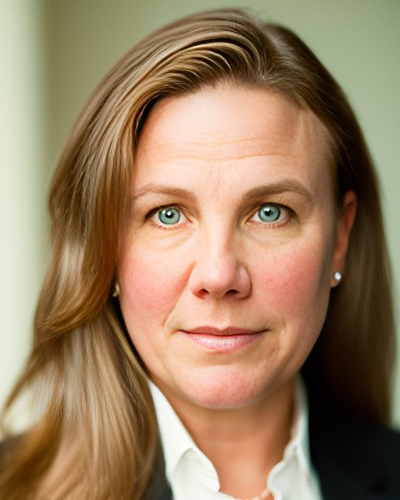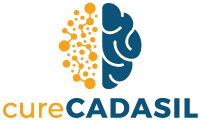The volunteers on our Scientific Advisory Board (SAB) are highly respected experts working within an array of disciplines, including medical research, business entrepreneurship, biopharmaceutical manufacturing, and others. Their efforts have led to notable progress in understanding and treating several rare diseases, particularly CADASIL. The cureCADASIL Board of Trustees is grateful for their valuable guidance as we collaborate towards finding a cure.
If you are interested in joining, please contact us at info@curecadasil.org to learn more.

Chris Hopkins, PhD, MBA , Chair
Chris Hopkins, PhD, MBA is biochemist/geneticist turned entrepreneur specializing in the creation of humanized animal models for rare disease biology discovery. Chris has a track record of translational success as an awardee of multiple Small Business Innovation Research. Chris is passionate in working with Rare Disease groups to help them progress their therapeutic programs quickly. He helped establish the CADASIL Disease Modeling Group (CDMG), developing models, finding biomarkers and testing therapeutic approaches to help treat and prevent the symptoms caused by dysfunction in the extracellular domain of NOTCH3. The CDMG brings together leading vascular biology researchers to: deploy omics technologies to help understand disease mechanisms and reveal biomarkers, obtain CADASIL-related grant funding, train and build a collaborative research community, and create model systems built so biomarker conservation can be assessed and high-throughput drug screens performed.

Thomas Caulfield, PhD
Thomas Caulfield, PhD, is the Founder and CEO of Digital Ether Computing, an innovative biotechnology firm specializing in AI-driven drug discovery and functional genomics, with a strategic focus on developing groundbreaking therapeutics for complex diseases, including neurodegeneration and cancer. He previously served as an Senior Associate Consultant and Associate Professor at Mayo Clinic, where he established a multidisciplinary research program combining computational chemistry, biochemistry, biophysics, and advanced in silico drug modeling and was Director for the Drug Discovery and Design Core Facility. Dr. Caulfield’s pioneering work integrates structural biology, generative AI, quantum-inspired simulations, and dynamic modeling to explore critical biological targets involved in neurological disorders and cancer at an atomic level. His research encompasses understanding intricate structure-function relationships governing protein dynamics, protein-protein interactions, and nucleic acid complexes, with an emphasis on translating these insights into therapeutic innovation. Leveraging sophisticated computational predictions coupled with rigorous biophysical validation methods, Dr. Caulfield’s teams have advanced numerous novel therapeutic agents, including small molecules, molecular glues, engineered proteins, exotic peptides, RNA therapeutics (aptamers and antisense oligonucleotides), and advanced nano-molecular interactors like PROTACs and Nexomorphs. His unique approach emphasizes entropy-driven learning algorithms, new AI frameworks, positioning his research at the forefront of precision medicine and computational innovation. Dr. Caulfield holds a PhD in Chemistry from Georgia Tech and has authored over 115 peer-reviewed scientific publications, as well as 65 patents. His distinguished career includes research leadership roles at institutions such as Mayo Clinic Ventures, reflecting his sustained commitment to advancing both fundamental science and translational therapeutic applications.

Clement Y. Chow, PhD
Clement Y. Chow, PhD is a professor in the Department of Human Genetics at the University of Utah School of Medicine. His lab is focused on developing precision medicine approaches for rare diseases by identifying modifier genes that can be targeted for therapeutic development, and performing drug repurposing screens for a number of different rare diseases. This employs quantitative and functional tools in a variety of model organisms to understand how genetic background can contribute to disease outcomes, and how we might take advantage of these differences to develop individualized therapies.

Patrick Clementson
Patrick is a CADASIL patient representative on the Scientific Advisory Board. Diagnosed in mid-2006, he has experienced CADASIL symptoms first hand for almost 35 years, and has used his experience to educate others who are also touched by CADASIL. He has developed a user-friendly, understandable, educational website that explains the ins and outs of CADASIL (https://www.thisiscadasil.org/).
He established the Facebook group CADASIL Oz/NZ (https://www.facebook.com/groups/258659084702051/?ref=share_group_link ) in May 2018 and shares his lived experience of CADASIL via his YouTube channel Me and CADASIL (https://youtube.com/@meandcadasil7093?si=cJWVYMybHTslueJK). Most recently, he has collaborated with investigators establishing a natural history study (AusCADASIL: An Australian Cohort of CADASIL). This study is examining clinical features, neuroimaging and blood biomarkers to establish early diagnosis and disease progression.

Fanny Elahi, MD, PhD
Fanny Elahi, MD, PhD is a physician-scientist and Assistant Professor in the Departments of Neurology, Neuroscience, and Pathology at the Icahn School of Medicine at Mount Sinai in New York City. Elahi’s work focuses on examining the link between disease of the brain’s small blood vessels and neurodegeneration. She is passionate about translating laboratory discoveries into clinical applications, and aims to inspire hope for a cure for CADASIL, Alzheimer’s Disease, Parkinson’s Disease, Frontotemporal Dementias, and other neurodegenerative disorders. In 2020, cureCADASIL and Elahi worked to form a collaborative group of investigators (the CADASIL Disease Modeling Group; CDMG) with the goal to share knowledge and resources to move forward drug discovery for CADASIL. For more information about Dr. Elahi, please visit https://vascbrain.com/.

Graeme Fielder, PhD
Graeme Fielder, PhD, is Chief Operating Officer at Avidobio (https://aviadobio.com/). He received his PhD degree in Molecular Medicine at the Liggins Institute, University of Auckland, Auckland, New Zealand, and Master of Business Administration (MBA) degree at Stanford University Graduate School of Business. After roles at pharmaceutical companies including Biomartin Pharmaceutical, Inc., San Rafael, CA, USA in 2014, and Astellas Gene Therapies, Inc. (Audentes Therapeutics, Inc.), San Francisco, CA, USA in 2017 -2020, he joined Avidobio as a founding team member in 2020. Avidobio’s current portfolio includes Amyotrophic lateral sclerosis (ALS) and Frontotemporal dementia (FTD) gene therapies focused on targeted and precise drug delivery and dosing for maximal biodistribution to the brain and spinal cord with a favorable safety profile.

Anne Joutel, MD, PhD
Anne Joutel, MD, PhD is a clinician-scientist trained in Neurology and Neurogenetics. She is currently a Research Director at the French National Institute of Health and Medical Research (Inserm) and leads a research group at the Institute of Psychiatry and Neurosciences of Paris (France). Her research focuses on understanding the mechanisms underlying cerebral small vessel disease (cSVD). Her laboratory leverages monogenic forms of cSVD, where a single gene defect leads to disease, as models to uncover the pathobiology of these complex disorders. Dr. Joutel has a longstanding research focus on CADASIL, the most common monogenic form of cerebral small vessel disease (cSVD). Her laboratory has made seminal contributions to its understanding, including the identification of NOTCH3 as the causative gene, the development of innovative mouse models, and the elucidation of NOTCH3‘s role in vascular physiology and disease mechanisms. She uncovered the critical impact of NOTCH3 accumulation and perturbations of the microvascular extracellular matrix (“matrisome”) in CADASIL pathogenesis, and demonstrated the preclinical efficacy of passive immunization targeting NOTCH3. In recognition of her groundbreaking work, she was awarded the Brain Prize by the Lundbeck Foundation in 2019.

Michelle A. McGuinness, MS, RAC
Michelle Mc Guinness is a biopharmaceutical leader with expertise in the quality, regulatory and compliance aspects of pharmaceutical manufacturing & marketing. She is a member of the Regulatory Affairs Professional Society and the American Society for Quality. Michelle understands the scientific aspects of CADASIL, as well as the impact that a rare disease has on a family. Ms. Mc Guinness’s father had CADASIL, and she is committed to advocacy, awareness & finding a cure for CADASIL.

